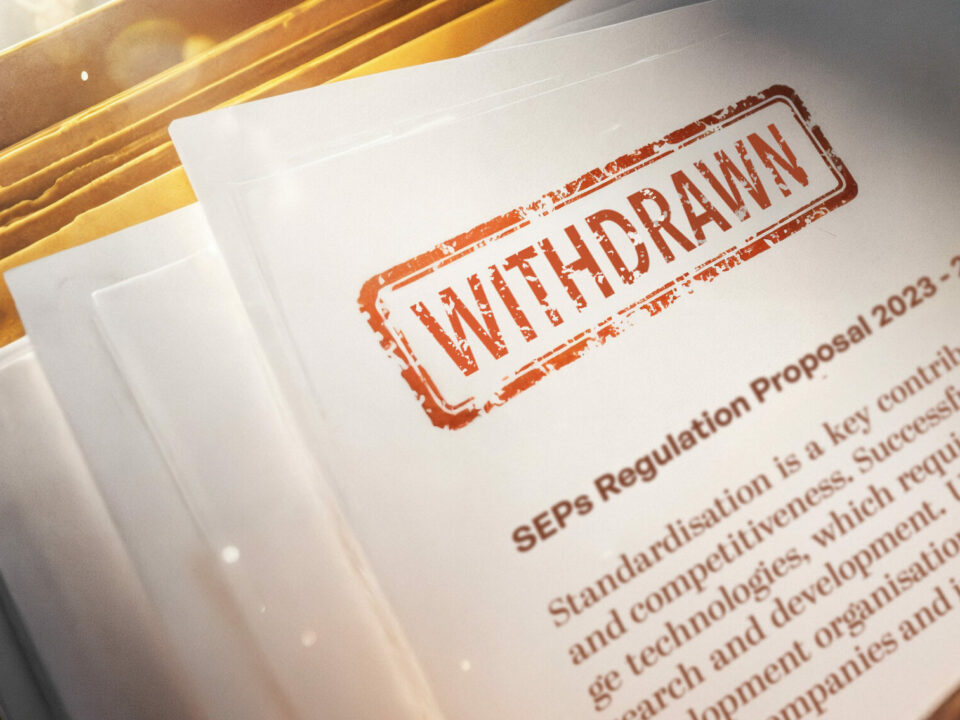The non-discriminatory (ND) limb of FRAND: general non-discrimination
In our recent blog post we explained why the non-discriminatory (ND) limb of FRAND does not mean every licensee is entitled to the same rate, even for similarly situated competitors.
We referred both to the judgements of Mr Justice Birss in the UK High Court case Unwired Planet v Huawei as well as the Court of Appeal decision in the same case which endorsed the notion that the non-discrimination (ND) limb of FRAND is not “hard-edged”, meaning a licensee can’t challenge an existing license merely because another similarly situated licensee was granted a licence at a lower rate.
In that same case Mr Justice Birrs also advanced the notion that the ND limb of FRAND means that a benchmark FRAND rate should be derived which is applicable to all licensees seeking the same kind of licence. He called this “general non-discrimination”. Importantly, the ND limb shouldn’t be taken in isolation from FRAND as a whole.
The UK Court of Appeal endorsed Mr Justice Birss’ notion of “general non-discrimination”, and went on to explain more concretely how this would work in practice:
“The [FRAND] undertaking therefore requires it [the SEP owner] to offer to license the portfolio on terms which reflect the proper valuation of the portfolio, and to offer those terms generally (i.e. in a non-discriminatory manner) to all implementers seeking a licence. The objective of the undertaking is not to level down the royalty to a point where it no longer represents a fair return for the SEP owner’s portfolio, or to remove its discretion to agree lower royalty rates if it chooses to do so.”
At paragraph 183, the Court of Appeal further explained Mr Justice Birss’ approach:
“Thus the judge’s approach does not mean simply that licences are available to all-comers, with the rates to be hammered out in negotiations which would take account of the relative bargaining power and other circumstances of the particular licensee. Rather it involves a unitary process in which a benchmark royalty is decided on which is then available to all-comers who are similarly situated. In that way weight is given to both the fair and reasonable limb and the non-discriminatory limb of the FRAND undertaking.”
So, it is these ‘benchmark’ terms the SEP owner should offer to all similarly situated licensees. However, the UK Court of Appeal didn’t stop there, and went on to explain the reality of how negotiations would proceed in practice, acknowledging that the rates eventually settled on may legitimately be different for different parties:
“It is true that the parties who seek to negotiate a licence on FRAND terms will not have the benefit of a court-determined benchmark rate. We do not see this as a real practical difficulty …..it will mean that the focus of the negotiations will be on determining a fair and reasonable rate for the portfolio, an exercise which is familiar in the patent licensing world. It is true that this will not be as simple as merely identifying the lowest rate which the SEP owner has offered in the past, but that is a consequence of adopting an approach which does not abandon the principle of fair reward to the SEP owner.”
Specifically, the Court of Appeal accepted that “differential pricing is not per se objectionable, and can in some circumstances be beneficial to consumer welfare.”
As concluded in our previous blogpost [include ref] different licensees can end up paying different rates without it being discriminatory under FRAND. As acknowledged in Unwired Planet v Huawei, negotiations with different parties may legitimately lead to different outcomes. In other words, different licensees may have different rates without contravening the ND limb of FRAND.



